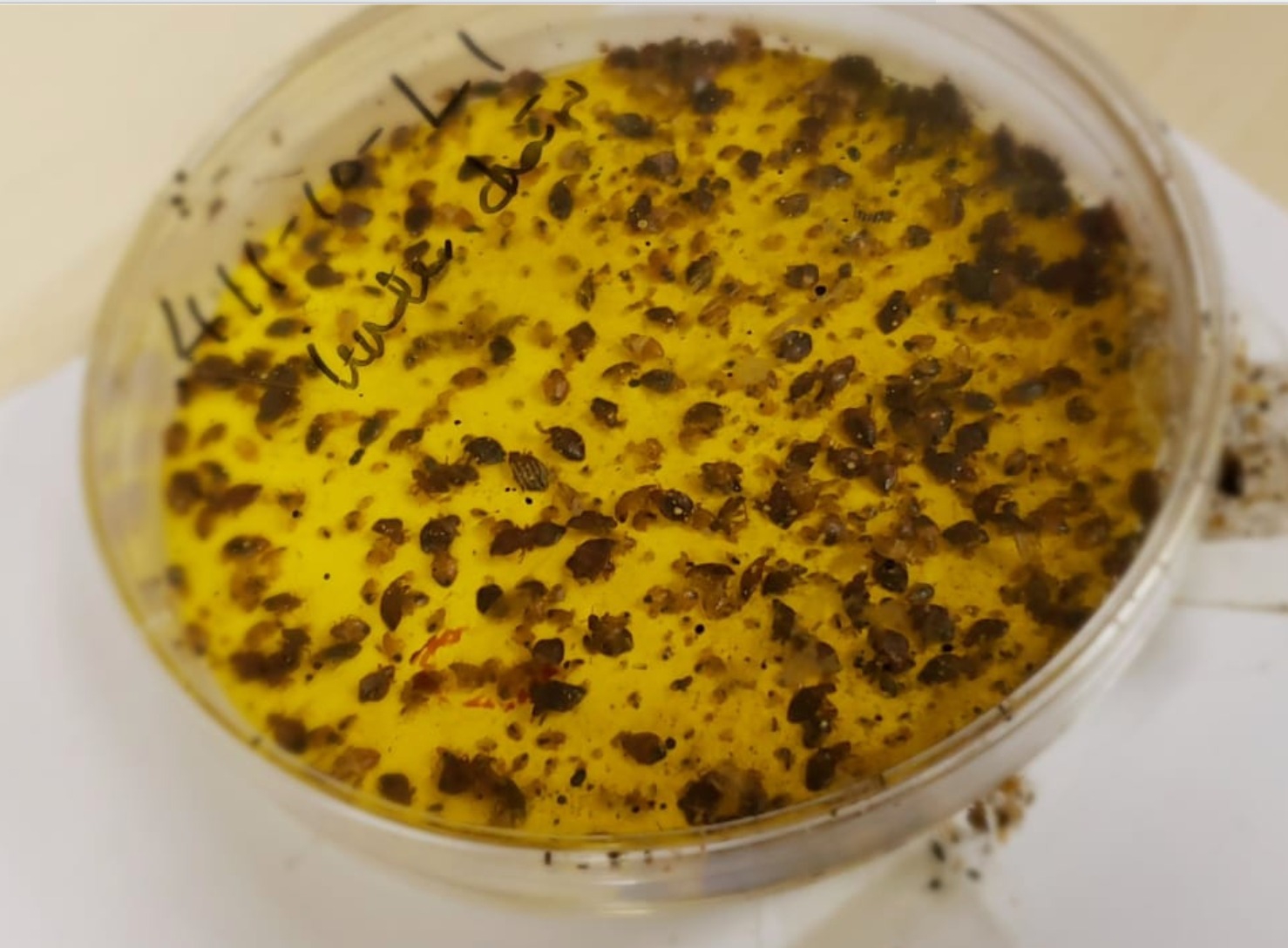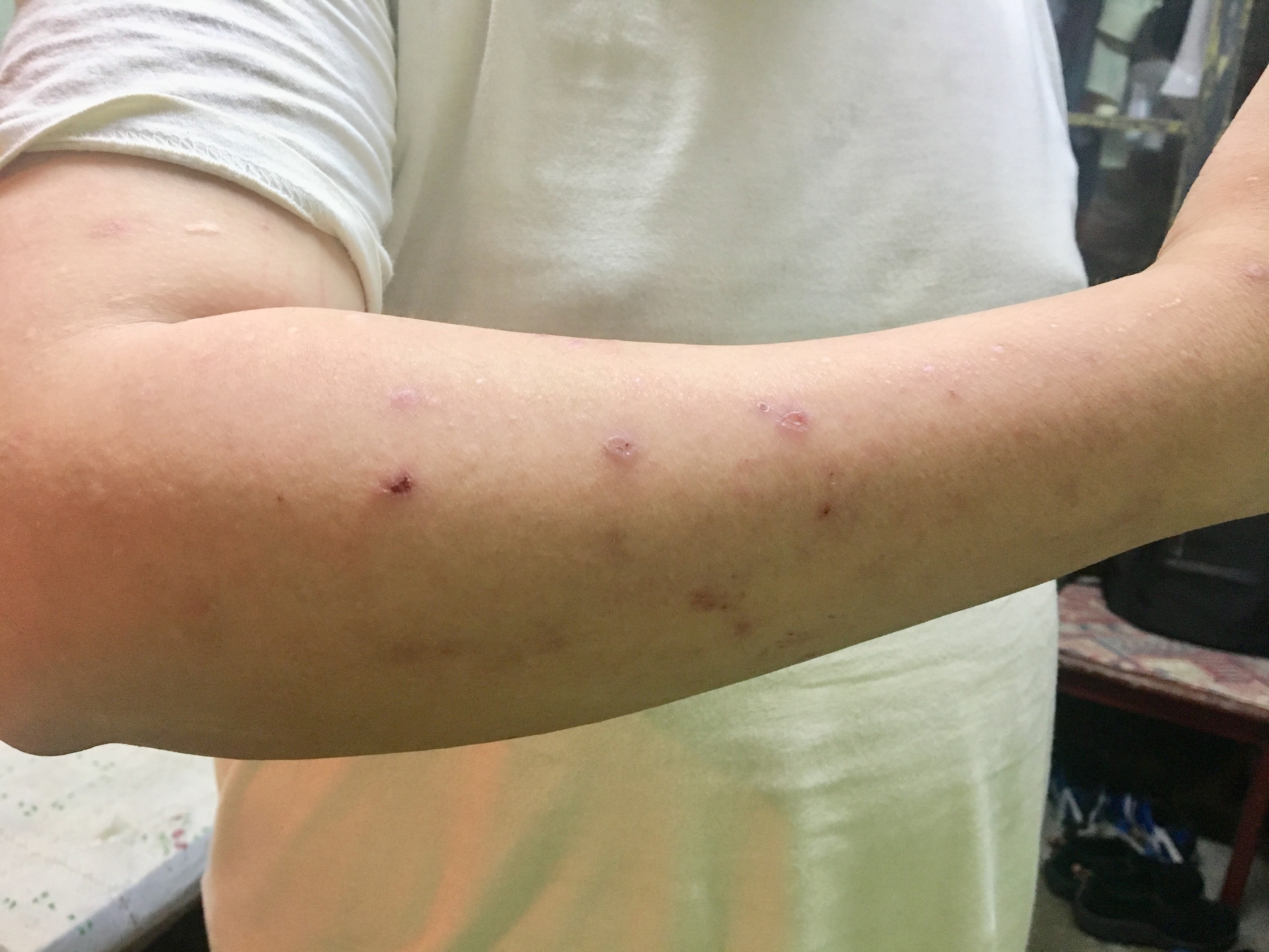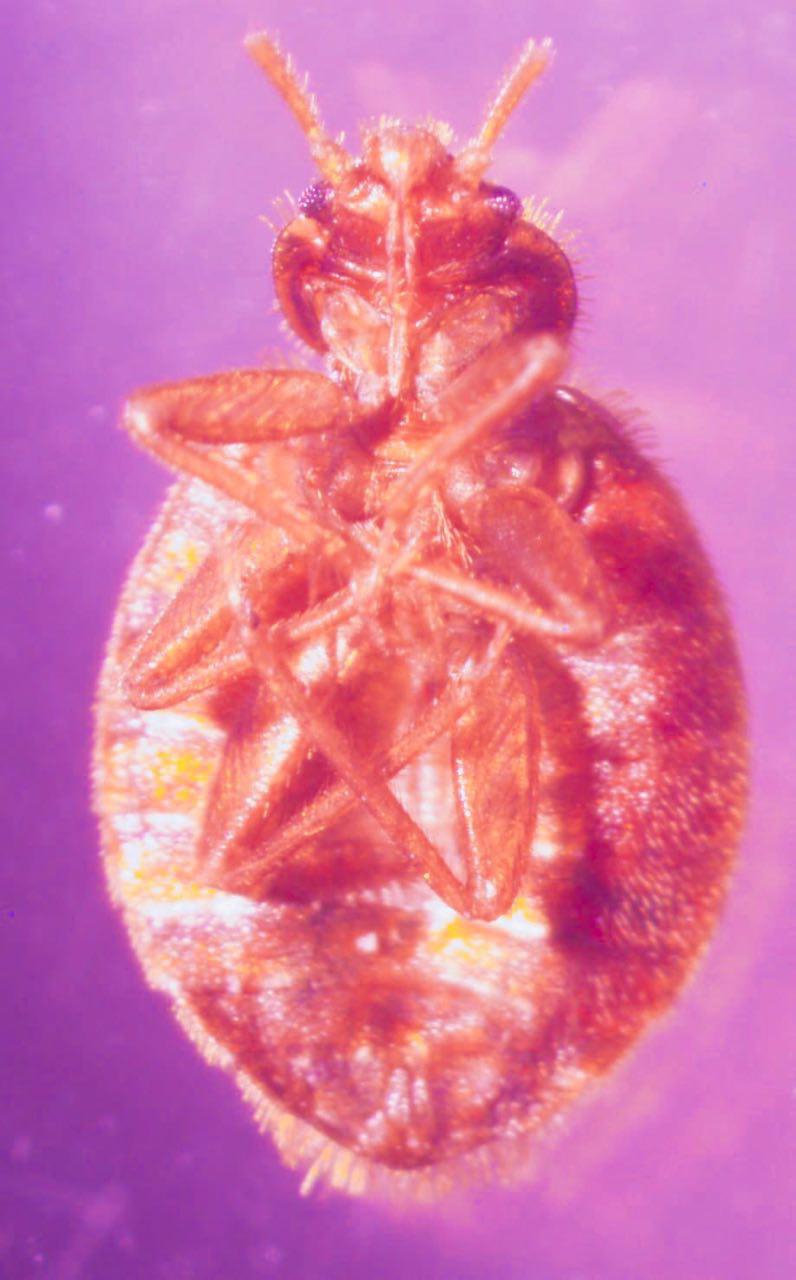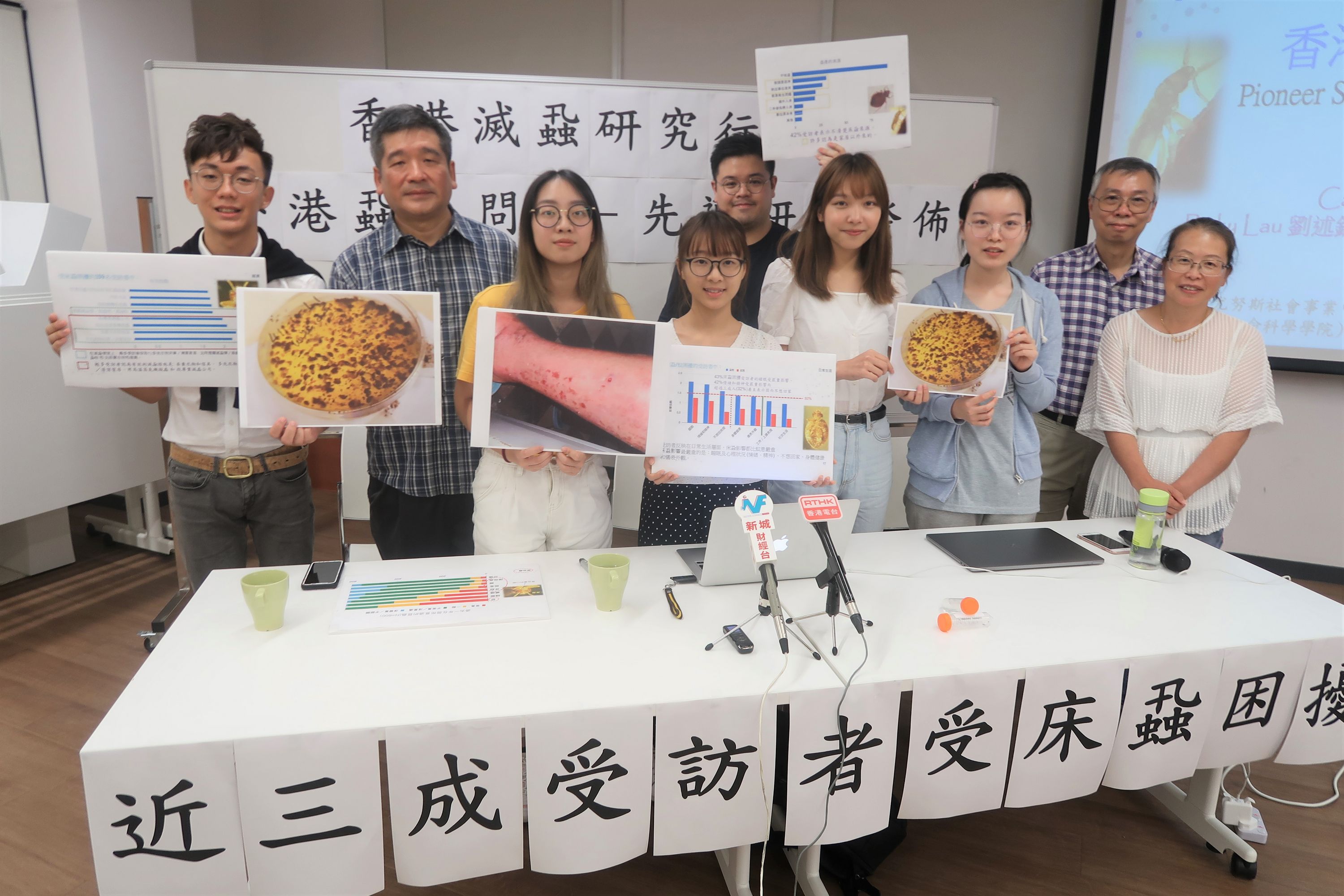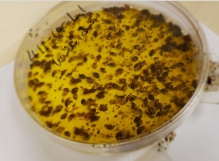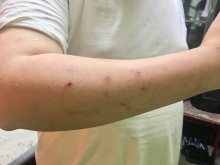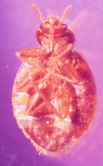News Centre
CUHK Hong Kong Anti-Bed Bug Research Action Group Releases Results of “Bed Bug Problem in Hong Kong: A Pilot Study” Nearly 30% of Residents are frustrated by bed bugs
Formed by professors and students of The Chinese University of Hong Kong (CUHK), the Hong Kong Anti-Bed Bug Research Action Group (the group) released the results of “Bed Bug Problem in Hong Kong: A Pilot Study” today (24 September 2019) pointing out that the spread of bed bugs in Hong Kong has become serious and created immense frustration to many residents. Social concern in Hong Kong and government action to address the infestation of bed bugs are needed.
The group collected 600 online questionnaire responses from July to August 2019 to study the spread and impact of common domestic blood-sucking bugs. Results show that 51% of Hong Kong households face bug infestation, and bed bugs are only second to mosquitos as the most common type of bugs. 36% of the respondents reported the appearance of bed bugs in their home over the past year. Statistics also show that the problem of bed bugs was across districts and income groups. It caused a mounting financial burden and adverse day-to-day impact for many respondents.
Impacts of Bed Bugs on Daily Life
159 respondents (equivalent to nearly 30%) reported being affected by the infestation of bed bugs, 28% of the respondents reported the situation persisted regardless of the season while 55% of them reported a worse condition during summer time. Bed bugs’ bite marks were usually left during sleeping periods and were found on respondents’ limbs. However, 42% of the respondents were not sure about the origin of the bed bugs, while many believed the bed bugs had invaded their home from the outside. The respondents were requested to rate the affected level on a three-point scale. Among other daily conditions, “sleeping quality” and “psychological condition” were the most severely affected by the infestation of bed bugs, reaching 2.1 and 2.0 respectively. Following close on these problem areas were “motivation to return home”, “physical health” and “physical appearance” which recorded 1.7, 1.5 and 1.5 respectively. 43% of the respondents had their sleeping quality seriously affected, 42% had their emotional and psychological conditions seriously affected while over 30% of them were discouraged from returning home because of bed bugs. Around 15% of affected respondents reportedly slept no more than 5 hours a day on average.
Bed bugs Mounting Financial Burden
Among the 159 bed bug-affected respondents, nearly 80% experienced itchy skin and skin with redness caused by bed bug bites. In terms of frequency, around 40% of affected respondents were bitten more than ten times a month on average. More than 80% of affected respondents had spent extra money on medication or consulting a doctor because of the bites. Among them, only 6-7% found medication and doctor consultations effective while 23-24% of the respondents found them ineffective. On the other hand, 20% of the respondents found applying Chinese herbal oil and itching relief balm effective, while only 13% found them ineffective.
In terms of bed bug control, most respondents had “increased frequency in washing clothes and bed sheets, and cleaning up home”, “applied insecticide fumigators, spray or powder”, and “disposed of clothes and furniture” to address the issue. Generally, measures including “disposing of clothes and furniture”, “increasing frequency in washing clothes and bed sheets, and cleaning up home”, “applying high-temperature steamer”, and “seeking help from professional pest control companies” were considered more effective than the others. These measures had however placed an extra financial burden on respondents’ shoulders. 17% of them said that the increased financial burden was extremely heavy.
As studies show, bed bugs crawl, attach themselves to furniture and to luggage, and even use the human body as a vehicle to break out in a community. Bed bugs can hide in cracks in furniture. Given their ability to live for a few months without sucking any blood, and their high fertility, bed bugs are extremely difficult to eradicate.
The group concluded that the problem of bed bugs in Hong Kong has become a public health problem that we must address because it has caused serious and widespread instances of human allergic reaction, physical annoyance, insomnia, itching bite marks, and financial burden.
The group was established on 9 January 2019 by professors from the Department of Social Work, the School of Life Sciences, the Office of University General Education, the Yunus Social Business Centre at CUHK, and the Jockey Club School of Public Health and Primary Care, CUHK, as well as students of various academic disciplines of CUHK. In collaboration with non-governmental organisations, the group has conducted a first-hand study of the problem of bed bugs in Hong Kong. The research examined the domestic bed bug condition through community and home visits and collecting data via an online survey for systemic analysis.
“Bed Bug Problem in Hong Kong: A Pilot Study” (Phase 2) Online Survey
The group is now launching the second phase of “Bed Bug Problem in Hong Kong: A Pilot Study” to further study the holistic impact of domestic bed bugs on affected residents by calling for public participation in an online survey (https://forms.gle/oiYmFPSWHXD7tTjw7) (Chinese only). Meanwhile, the group is also developing an effective, affordable, harmless human and eco-friendly bed bug control solution to address the issue. In the long run, the group anticipates developing a comprehensive approach to ease the problem of bed bugs in Hong Kong.
Hong Kong Anti-Bed Bug Research Action Group: “Bed Bugs Problem in Hong Kong: A Pilot Study” team
Student members:
Miss Canny LO, Year-4 Biology student, School of Life Sciences, CUHK
Miss Heidi FUNG, Year-4 Biology student, School of Life Sciences, CUHK
Mr. Ricky LAU, Year-4 Biochemistry student, School of Life Sciences, CUHK
Mr. Kayson CHAU, Year-2 Nursing student, Faculty of Medicine, CUHK
Miss Queenie HO, Year-2 Nursing student, Faculty of Medicine, CUHK
Advisors:
Professor WONG Hung, Director of Yunus Social Business Centre at CUHK, Associate Professor of the Department of Social Work, CUHK
Professor CHIU Siu-Wai, School of Life Sciences, CUHK

Professor Wong Hung, Director of Yunus School Business Centre at CUHK and Associate Professor of the Department of Social Work (2nd left), Professor Chiu Siu-Wai and Professor Lam Hong-Ming, both from the School of Life Sciences, CUHK (1st to 2nd right), established the Hong Kong Anti-Bed Bug Research Action Group with students of various academic disciplines of CUHK.
